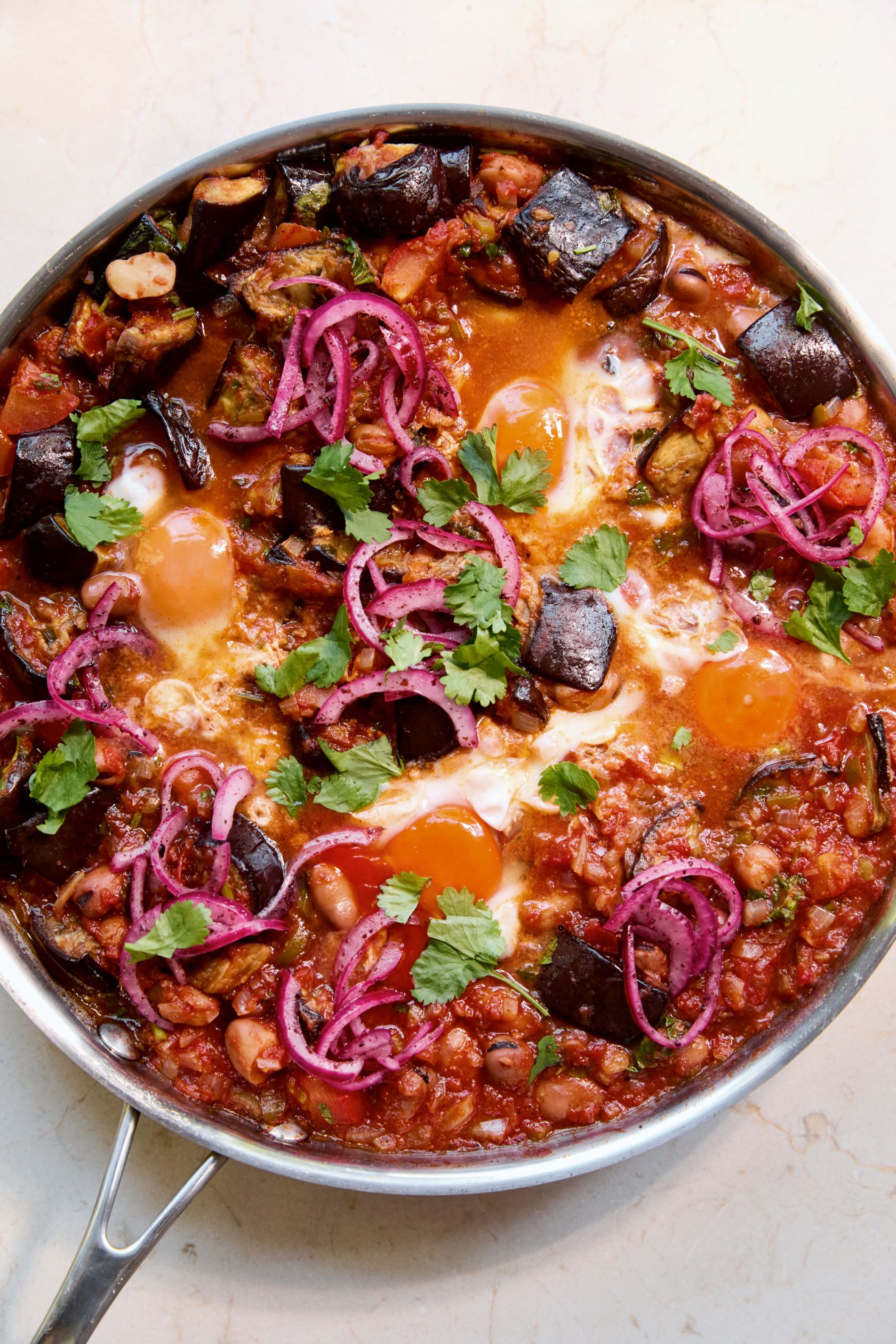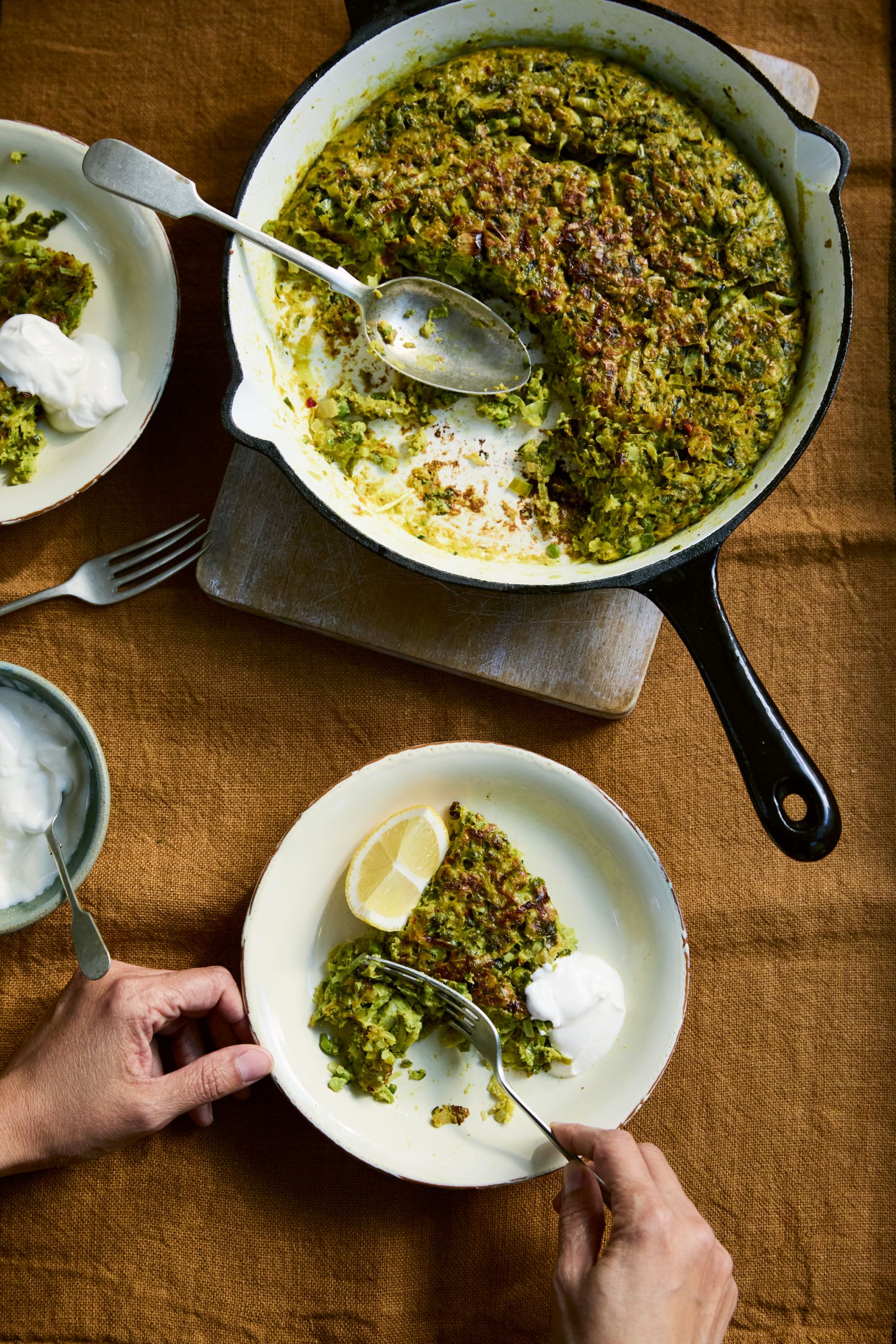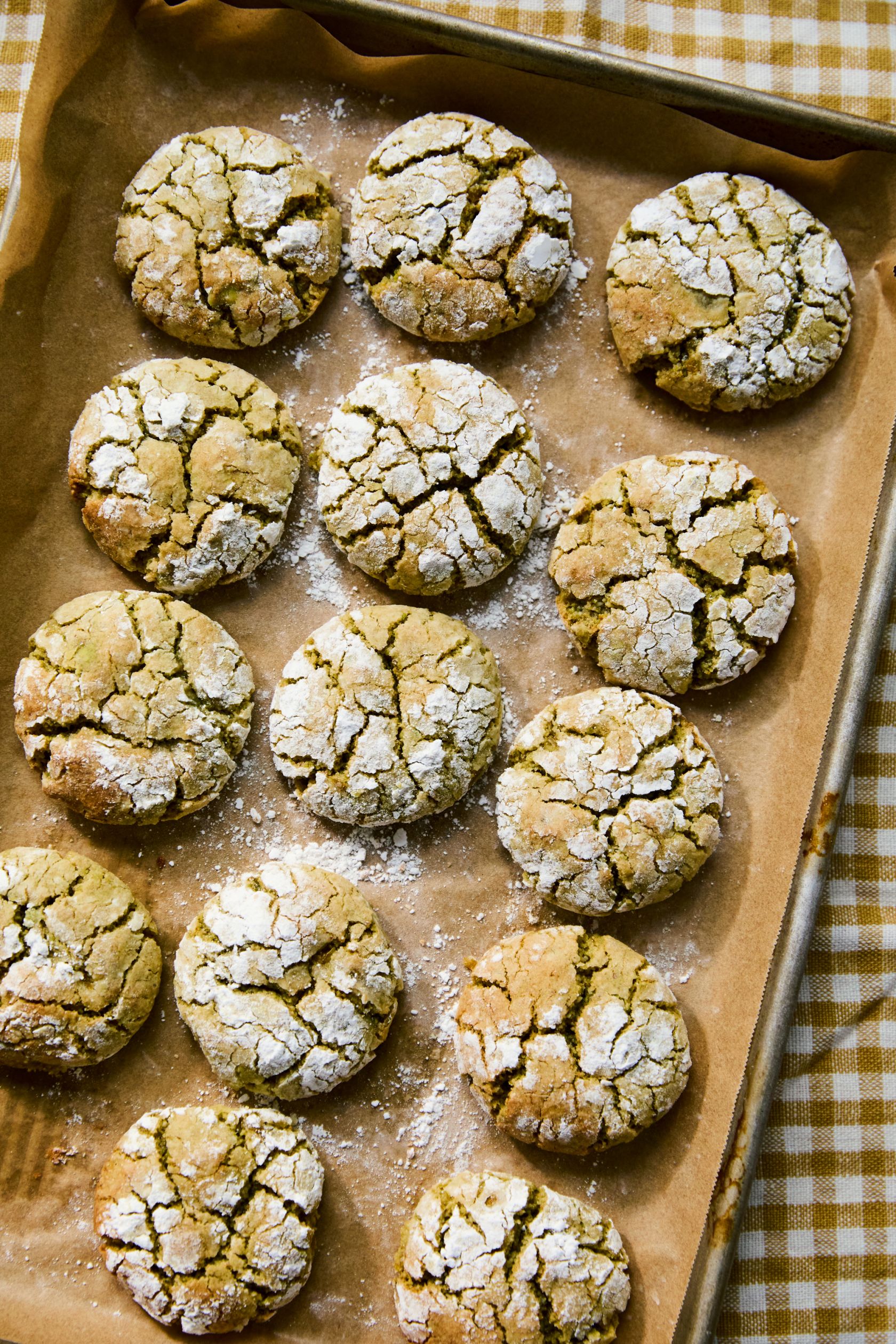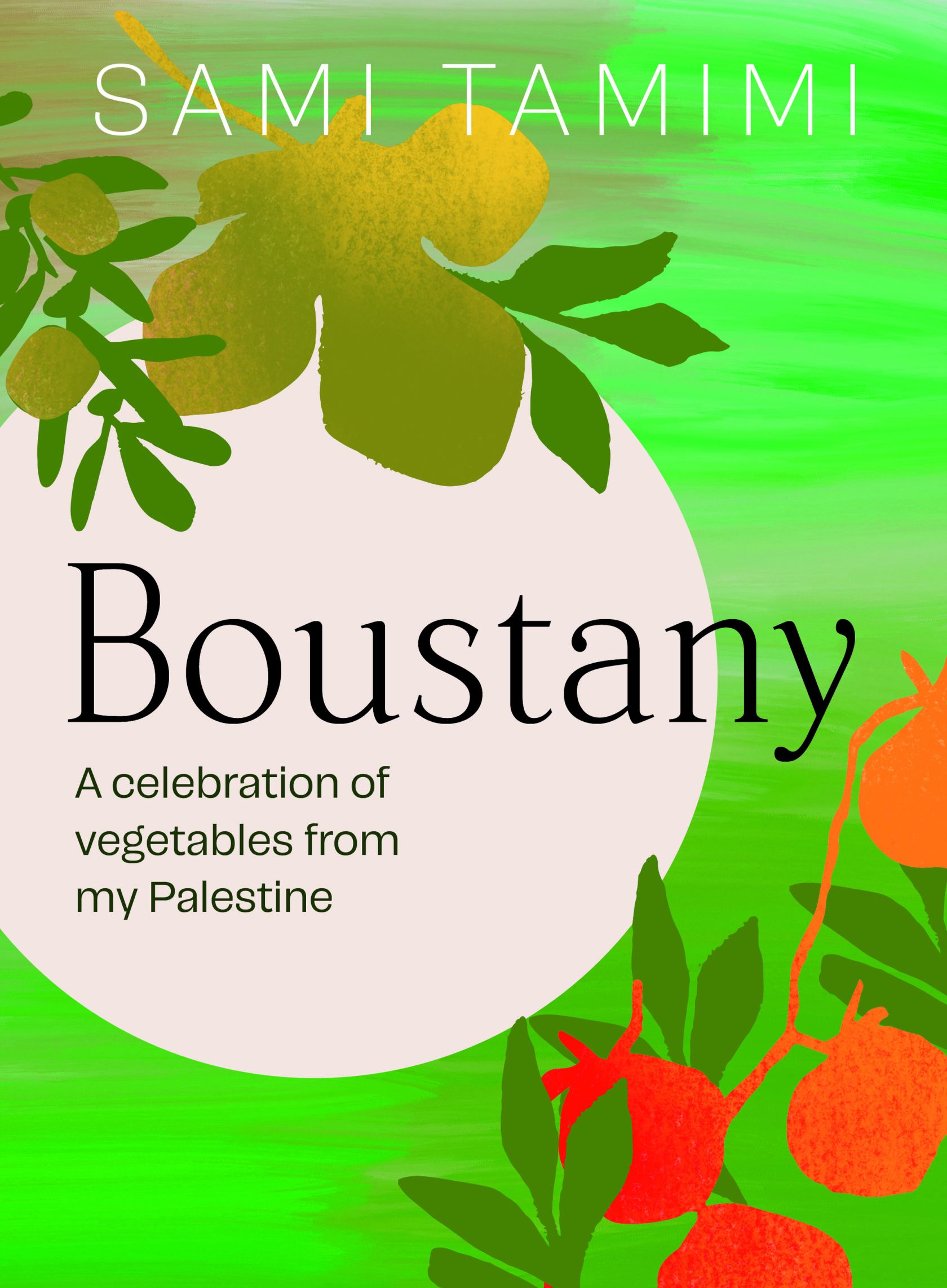Chef and author Sami Tamimi says his mission is to “keep talking about Palestine”, its food, culture and people.
“It helps it not to disappear,” says the 57-year-old, “as a Palestinian who has a voice, as a food writer, I feel that we must use all the tools we have to keep it alive.”
Palestinian food is “very important” to promote, he believes, “because we’ve been erased”.
He hopes the publication of his new cookbook, Boustany – translating to ‘my garden’ in Arabic, and focussing on vegetable dishes of Palestine and the dishes of his roots – will help in a small way to “bring some spotlight on the country, the food, the people and the place”.
Like the Middle Eastern cuisines of surrounding Syria, Lebanon and Jordan, Palestinian food is “heavy on vegetables, grains, pulses, herbs, it’s very connected to farming, to seasons, it’s connected to the surroundings – people tend to forage quite a lot.”
“If you want to compare Lebanese to Palestinian cooking, Palestinian cooking is a bit more robust, and the flavouring is slightly more earthy.”
Aubergine and fava beans with eggs (Batinjan w Ful ma’ Beyd)

Ingredients
(Serves 4)
2 medium aubergines (around 630g)
80ml olive oil, plus extra to serve
Salt and black pepper
1 onion, finely chopped (175g)
6 garlic cloves, crushed
1 small piece of ginger, peeled and finely grated (20g)
1 green chilli, finely chopped, seeds and all (20g)
1tsp chilli flakes
1tsp ground cumin
½tsp ground cinnamon
1½tsp tomato paste
2 plum tomatoes, chopped into
2cm chunks (300g)
1 x 400g tin of chopped tomatoes
1 x 400g tin of fava beans, drained
300ml water
15g fresh coriander, roughly chopped, plus more to serve
4 large eggs
For the sumac onions (makes a medium jar):
1 large red onion, cut in half, then each half thinly sliced
1½tbsp sumac
100ml apple cider vinegar
100ml water
3tbsp lemon juice
Salt
Method
1. Make the sumac onions the day before you need them. Pack the sliced onion into a 400ml jar, one which has a lid. Add the sumac and set aside. Place the vinegar, water, lemon juice and 1 tablespoon of salt in a medium bowl and whisk well until the salt has dissolved. Pour the vinegar mixture over the onions, cover the jar and give it a gentle shake. The onions are ready to eat the next day. Store them in the fridge for up to 3 weeks.
2. Preheat the oven to 220°C fan.
3. Cut the aubergines into 4cm chunks and place in a large bowl. Mix well with 40ml of the oil, ½ teaspoon of salt and a good grind of black pepper, then spread out on a large parchment-lined baking tray. Roast for about 25 minutes, or until completely softened and lightly browned. Remove from the oven and set aside.
4. While the aubergine is roasting, make the sauce. Put the remaining oil into a large sauté pan and place on a medium–high heat. Add the onion and cook for about 7 minutes, until softened and lightly browned.
5. Add the garlic, ginger, green chilli, chilli flakes, spices and tomato paste and cook for another minute, or until fragrant. Add the chopped tomatoes, tinned tomatoes, fava beans, water, 1¼ teaspoons of salt and a good grind of pepper. Reduce the heat to medium and cook for 15 minutes, or until the sauce thickens.
6. Add the aubergine chunks and cook for a further 3 minutes. Stir in the coriander, then reduce the heat to medium–low. Make 4 wells in the sauce and crack an egg into each well. Use a fork to gently swirl the egg whites a little bit, taking care not to break the yolks.
7. Simmer gently for 7–8 minutes, until the egg whites are set but the yolks are still runny. You can cover the pan with a lid for the last few minutes (to speed up the process).
8. Leave to settle and cool for a couple of minutes, then garnish with 30g of the sumac onions, coriander, a drizzle of olive oil and a little salt on the eggs.
Courgette and leek ijeh (Ijehet Kousa w Kurrath)

Ingredients
(Serves 4-6)
250g frozen peas, defrosted
2 courgettes (300g)
1 small onion (150g)
1 large leek, finely chopped (175g)
50g plain flour
15g fresh parsley, finely chopped
10g fresh mint leaves, thinly shredded
1¼tsp dried mint
1tsp Aleppo chilli flakes (or regular chilli flakes)
½tsp ground turmeric
1tsp dill or fennel seeds, slightly crushed
3 large eggs, lightly beaten
Salt and black pepper
3tbsp olive oil
To serve:
lemon wedges
sour cream
Method
1. Put the peas into a food processor and blitz for a few seconds – you want them to be slightly crushed but not mushy. Place in a mixing bowl and leave aside.
2. Trim the courgettes and peel the onion, then, using the coarse side of a box grater, grate them on to a clean tea towel or muslin. Gather the ends of the tea towel and twist hard over a bowl to squeeze out as much liquid as possible. Add the grated courgette and onion to the peas, along with the leek, flour, herbs, spices, eggs, 1¾ teaspoons of salt and a good grind of black pepper. Mix well to form a uniform batter.
3. Place a large (28cm) shallow non-stick pan (with a lid) on a medium heat and add the oil. When the oil is hot, add the ijeh mixture, smoothing it down to make an even patty. Partly cover the pan and cook for about 17 minutes on a low heat, shaking the pan a few times to make sure it doesn’t stick at the bottom, and running a rubber spatula around the sides, until the edges start to get golden brown. Get a large flat plate and it place over the pan.
4. Carefully invert the pan, plate and all, so that the ijeh ends up on the plate. Slide it back into the pan to cook uncovered for 15 minutes, until it is firm and cooked through. When ready to serve, slide the ijeh on to a serving plate, squeeze over a little lemon juice and serve with lemon wedges and sour cream on the side.
Lemon and pistachio cookies (Ma’akaroon)

Ingredients
(Makes 15)
125g pistachios, finely ground
125g ground almonds
100g caster sugar
½tsp mastic, ground
¼tsp baking powder
Salt
2tsp finely chopped preserved lemon
1tsp lemon zest
1tsp vanilla bean paste
1tbsp runny honey
1 egg, lightly whisked
15g unsalted butter, at room temperature
2–3tbsp icing sugar, sifted
Method
1. Put the ground pistachios, ground almonds, sugar, mastic, baking powder and ⅛ teaspoon of salt into a large mixing bowl and mix well, just enough to combine everything together. Add the preserved lemon, lemon zest, vanilla, honey, egg and butter and give everything a good mix, using a wooden spoon or spatula. The mixture should be slightly sticky.
2. Place the icing sugar on a large plate and start rolling the batter into walnut-size balls, about 30g each. Gently roll the balls in the icing sugar, making sure that they are well coated on all sides. Arrange on a large oven tray lined with baking parchment, evenly spaced out. Cover the tray and leave in the fridge for 30 minutes.
3. Preheat the oven to 175°C fan and bake the cookies for 10–12 minutes, or until they start to get a bit of colour. Leave them to cool completely before serving.
(Once the cookies have been rolled, they can be kept in the freezer, in an airtight container, for a few weeks. When they are already baked, they will keep in an airtight container for five days).

Boustany by Sami Tamimi is published by Ebury.









